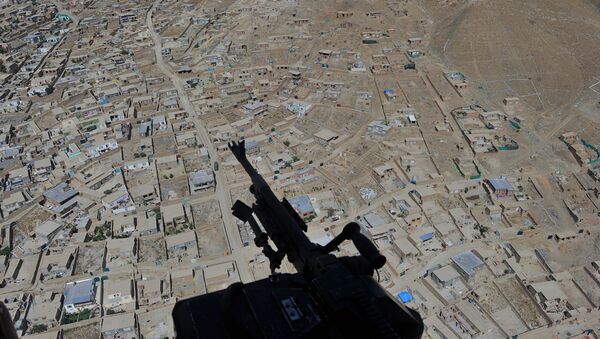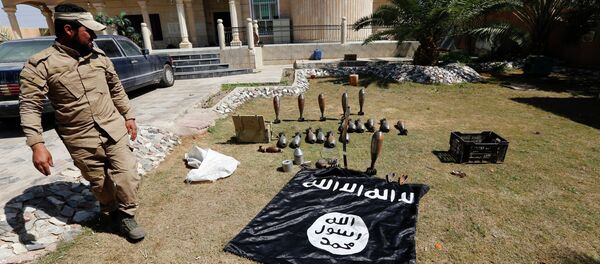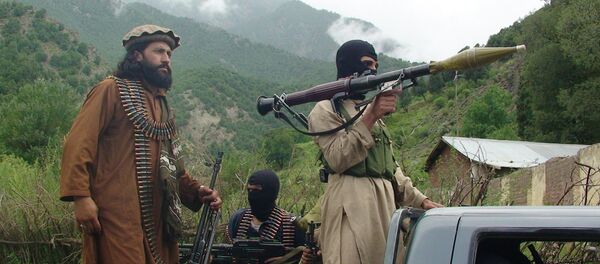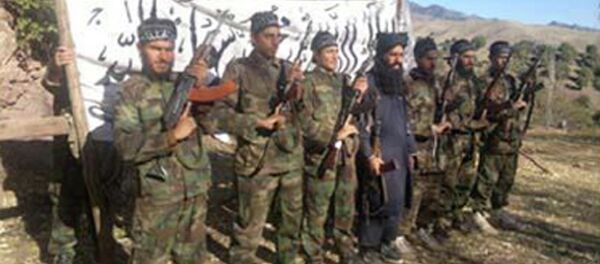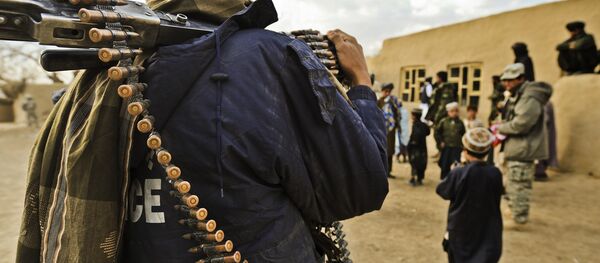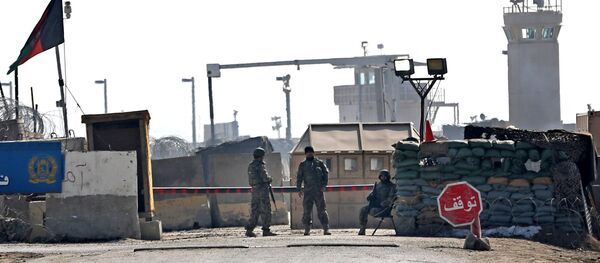"If the Afghan government can portray that the Islamic Sate of Iraq and Syria [ISIL] is threatening the sovereignty of the state, it creates better rationality for the international presence," professor of political science at the University of Illinois Marvin Weinbaum told Sputnik, when asked to evaluate the ISIL threat to Afghanistan.
Afghanistan has seen an upsurge in violence since foreign troops started to withdraw from the country, resulting in an enormous number of casualties. According to recent UN reports, civilian causalities rose by 8 percent in the first three months of 2015.
"As of today, it is hard to evaluate the ISIS [ISIL] presence in Afghanistan," Weinbaum stated, adding that there is no direct indication that "Abu Bakr Al-Bagdadi, [the leader of the ISIL group], is calling the shots there."
He pointed out, however, that this new emerging terrorist force may have found additional supporters among Taliban and al-Qaeda insurgents, "who are ready to find another loyalty and affiliate with another name that is on everyone's lips."
The emergence of ISIL in the region is playing into the hands of the Afghan leadership, Marvin Weinbaum, who served as an analyst for Pakistan and Afghanistan in the US Department of State's Bureau of Intelligence and Research, stressed.
According to Weinbaum, the Afghan strategy "is to keep the international community involved in Afghanistan but also to pursue the possibility of negotiations with the Taliban."
However, the Taliban itself states that it will not negotiate seriously as long as there are foreign troops in the region.
In January, the North Atlantic Treaty Organization (NATO) formally ended its International Security Assistance Force (ISAF) mission in Afghanistan and launched its new "Resolute Support" mission in Afghanistan.
Jasteena Dhillon, International, Military and Development Affairs Consultant at the University of Windsor Law School, welcomes the United States' decision to reduce its military presence in Afghanistan.
"The long term development of the country can't be done by the military alliance, because it does not have the credibility in the civilian agencies, civil society and among citizens," she told Sputnik.
According to the expert, NATO's decision to launch a follow-on mission demonstrates that the military bloc is trying to help the Afghan leadership stabilize the situation in the country.
"The [previous] NATO mission in Afghanistan has not failed [completely], it has fallen well short on its goals," Marvin Weinbaum pointed out, adding, however, that "although, the Taliban doesn't hold openly any territory in Afghanistan, its presence across the country remains rather substantial."
Both experts agreed, however, that while none of the neighboring countries, including Russia, Pakistan and Iran, want to see a permanent international military presence in Afghanistan, they also realize that a quick departure will bring chaos in the region.

